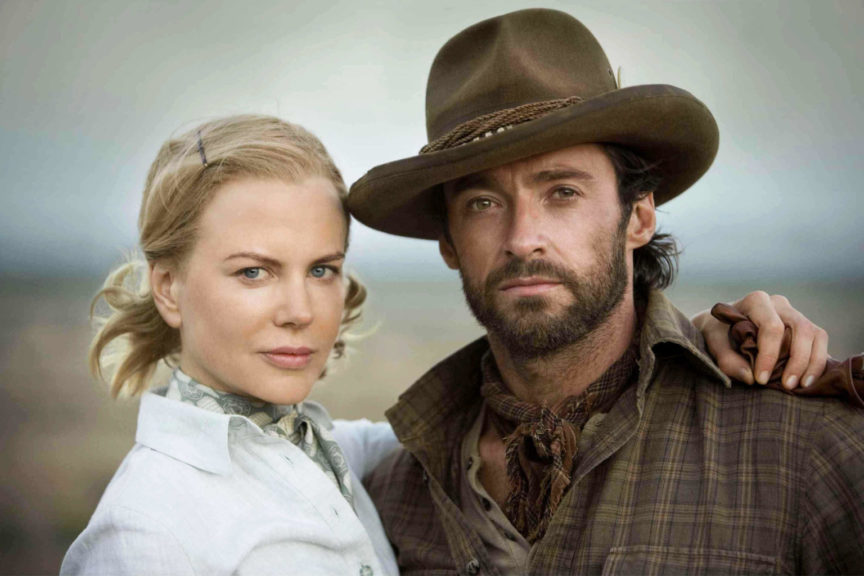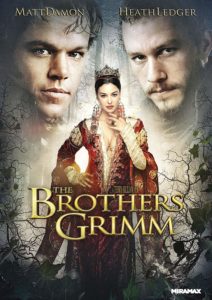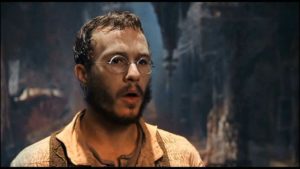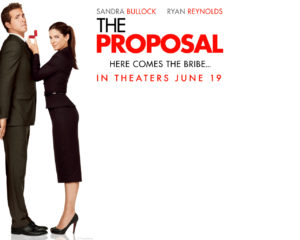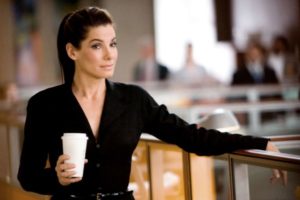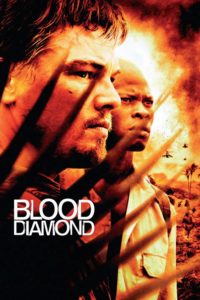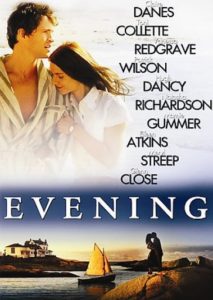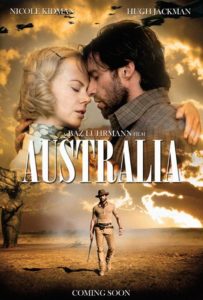From 2005 to 2009 I was a programmer on CKDU 88.1 FM in Halifax, every Sunday morning hosting The Love & Hate Movie Show. I talked about what I was seeing and revisited some of my favourite films of old, pretty much what I’ve been doing here on FITI since 2010. I still have a lot of the scripts from the old days, and thought I should share them here (with some editing and updating) for archival reasons—and just for fun.
I’ve shared a few of these reviews already, starting in August 2015, probably for the same reason I’ve gone back to them now—there’s little grabbing my interest in cinemas at the moment. Click on these links for reviews of the first batch, films that premiered locally at the Atlantic Film Festival, a few horror titles, and five-star features.
And here are a few films from that period I wouldn’t recommend.
The Brothers Grimm
I always look forward to new movies by Terry Gilliam, the former Monty Python member, former animator, and current enfant-terrible director who made Brazil, The Fisher King, 12 Monkeys and Fear & Loathing in Las Vegas. The guy’s visual imagination is unmatched, as is his ability to upset Hollywood studios with his out-of-control budgets.
The Brothers Grimm is no different on any of those fronts. It had a troubled production, with Gilliam arguing over make-up and casting with the studio that was looking for a big hit fantasy movie. Gilliam has delivered a movie that is big on his trademark imagination, but, disappointingly, a real slog to get through.
Matt Damon and Heath Ledger play Will and Jacob Grimm, the famous storytellers (well, actually, Jacob is the real storyteller, Will is the ladykiller). They make their living in French occupied Germany in 1796 as charlatans, setting up elaborate supernatural scams with the help of their assistants, and feeding off the superstitions of rural villagers.
It isn’t long before they get picked up by the French authorities and brought before Delatombe, the French General played by Johnathan Price, and his Italian Henchman, Capaldi, played by Peter Stormare. Delatombe wants them to help out a town that has an actual supernatural mystery. All the daughters of the village are disappearing in the nearby enchanted forest, a place where, it’s said, lives an evil witch queen.
There are some very direct connections between this picture and Gilliam’s earlier movies, Monty Python and The Holy Grail and Jabberwocky. He really is fascinated with myth and fairy tales, and a number of classics are incorporated right into the story. He also loves mud and mess—everything looks so damn mucky, and the swooping camera keeps you a little disoriented as to what is going on half the time, along with some blatant and hilarious music cues.
I loved all the dour peasants, the cackling crone who constantly predicts doom. Right out of Python. Pryce’s French accent and Stormare, who is Swedish by birth, his Italian accent— they’re both wildly over the top, to the point they’re barely intelligible. In fact, there were moments I sort of wished Gilliam would take this material to the absurd level of Python. It would have been a laugh riot. Not that it doesn’t have funny moments. There are some hilarious lines in the script by Ehren Kruger, and there’s plenty of evidence of Gilliam’s fabled visual imagination. There are great touches: the shiny “magical” armour, the crazy costumes. At one point two men are hanging over a boiling cauldron with snail-filled cases around their heads, and at another, Will uses a bizarre, buzzing stethoscope-like device to detect supernatural energy.
But the film never really comes together. Damon and Ledger are capable, but seem slightly lost in the chaos around them. When the plot does coalesce towards the end with the battle against Monica Bellucci’s villainous queen, themes of brotherly fidelity become a little clearer. At that point there’s a bit more emotional meat to chew on. Still, it’s all very strenuous, a bit long, and there’s precious little joy in it, as if Gilliam’s behind the scenes struggles found their way onto the screen somehow. Lena Headey (more recently of Game of Thrones) plays local trapper woman Angelika, and she’s just sort of there, without much chemistry with the male leads.
So, yeah, it’s all a bit of a letdown. If you like Gilliam’s work, as I do, you’ll certainly find things to enjoy here, but otherwise, go and rent Time Bandits or The Fisher King, or the recent documentary about his failed effort to bring Don Quixote to the screen, called Lost In La Mancha. (His successful take on that story has finally been released as The Man Who Killed Don Quixote, but is still unseen by me.)
Flightplan
Jodie Foster is like a diamond. She’s so merciless and sharp in her acting, it’s almost scary. In Flightplan she plays Kyle Pratt, an aviation engineer who, while on a Berlin to New York flight on the mega jumbo jet she helped design, misplaces her 6-year-old daughter, a little girl no one remembers ever being on the plane. Her husband having just died she is relocating back in the States. We meet her in a moment of grief and anxiety, it’s like the skin on her face is just going to stretch off her skull and she’ll grind her teeth to dust. Then she loses the little girl, and really pushes her freak-out buttons. Air Marshall Peter Sarsgaard corrals her, and she pleads her case to a sympathetic crew that becomes more doubtful as time goes on, including pilot Sean Bean.
I know people will say Foster gave a great performance. She’s been so good in the past, so nuanced, but she just gnashes scenery here. The thing is, if you put a character in an outrageous situation, who can you think of who would be more capable to handle it than her? You never disbelieve her, even when she disbelieves herself. There’s no suspense in it.
And the situation is plenty outrageous. As the film goes on, the plot becomes more and more implausible. Usually reliable actors go waaay over the top, joining Jodie. The plane has more caverns and empty spaces than Nakatomi Plaza in Die Hard, and the conspiracy is the dumbest thing I’ve seen in a long time.
Foster is always watchable, but you’ll want to fly away from this movie. By the end you’ll be shaking your head, going, “What the hell was that nonsense?”
The Longest Yard (2005)
There’s no doubt the original The Longest Yard from 1974 can be counted amongst sports movie classics. The newer one is lifted almost entirely from the Robert Aldrich- directed original with scene, dialogue, and even camera angles intact, but this Adam Sandler vehicle is just another example of selective cultural amnesia. With so little that is new, anyone who has seen the original will find this a third-string retread, and those who haven’t should just go ahead and rent the first one.
Sandler plays the Reynolds role with little of his charm or physical grace. I’m not a crazy Sandler fan, but I laughed a lot at The Wedding Singer, 50 First Dates and Happy Gilmore. I loved him in Punch Drunk Love, but then that’s been proven to be an entirely atypical role.
Here he’s a quarterback who gets sent to jail and is forced to play in a fixed football game for the prisoner team versus the guards. Usually the funniest thing in his movies, Sandler underplays his part. With his wacky presence absent from the centre, a few supporting players do get a chance to shine, especially Chris Rock. Sadly, the late Reynolds himself playing the convict coach comes off as stiff, though fans of pro wrestling and the NFL may enjoy spotting former stars such as Steve Austin, Michael Irvin and Brian Bosworth.
Most annoying is the weak direction. It’s a recipe for tedium: pointless CGI and a lax scene structure combine with little character development and tepid jokes. The one place this version of The Longest Yard kicks over the original is in the football scenes, which look like a well-edited NFL highlight reel.
Save your money turn on the TV this afternoon. There’s plenty of football on right now if you enjoy the Canadian version of the game.
As for the ’74 edition of The Longest Yard, imagine a world where charm, teeth, sideburns and over-powered cars rule the day. It’s the perfect distillation of the charm of Reynolds’ persona. The premise is as pure an anti-authority parable as exists in American cinema, and it includes lots of shots of Reynolds’ hirsute torso (familiar by then to readers of Cosmopolitan magazine in which he’d posed nude) and plenty of violence and good-natured, buddy humour.
The Proposal
The Proposal is excruciating. And this is from me, someone who is a softie for romantic comedies, even 27 Dresses, the last film by this director, Anne Fletcher
Margaret (Sandra Bullock) is a power-hungry automaton, an editor at a big New York publishing company. But she’s Canadian, and she’s been ignoring the responsibilities of her Visa, something her Executive Assistant/Secretary, Andrew (Ryan Reynolds), probably should have managed for her since he’s working so hard to stay in her good graces. But now she’s going to be deported, so hatches a plan to marry him to allow her to stay and keep working in New York. She blackmails him saying he’ll lose his job if he doesn’t, but he really does it because she promises him a promotion to editor and his manuscript published.
Off they go to Alaska for his grandmother’s 90th birthday and to introduce her to the family, putting together an elaborate plan of lies and deception, something which makes them both look like heels in front of his sweet family. Of course the charm of Alaska starts to rub off on her. And I don’t really buy it, any of it, at any time.
The one thing that Sandra Bullock needed for us to do was feel some kind of sympathy for this character, or at least pity, which she completely fails at, at least in the first two acts of the movie. And Ryan Reynolds comes off, except in maybe one or two scenes, as a spineless, greedy schmuck. The supporting cast, including sterling character actors Craig T. Nelson, Betty White and Mary Steenburgen are pretty much wasted until the end, when everyone starts to show human qualities, but by then it’s too late. Up to that point everything seemed so artificial and nasty that I didn’t believe the character arcs.
The script is the real culprit here, more than the performers or the direction. The premise was done similarly before, Peter Weir’s 1990 romcom Green Card with Andie MacDowell and Gerard Depardieu, and done with my more grace and charm than this one manages at any point. The scene with Ramon, the exotic dancer (who later turns out to be also a reverend at a wedding) was so unlikely, and so lame, I was embarrassed for everyone involved.
Here’s a sample of the kind of gags we get: When Margaret is loading all her suitcases onto a boat to go to the big house in Alaska, Betty White says: “She comes with a lot of baggage.” And later, Ryan Reynolds, when telling the story of their engagement says: “This woman is about as subtle as a gun.” Really? This is the best they could come up with?
Betty White has a scene where she performs a Native American dance, which is likely wildly offensive to anyone with indigenous heritage, but it’s also just so stupid and patently unfunny. Later, in a wedding dress shop, White has a really good moment, but it’s far too late.
The one thing that could have saved this story is if the leads had reversed roles. Reynolds is much better when he’s smarmy and superior because his natural likability shines through anyway, Also, he is ACTUALLY CANADIAN whereas Bullock is best when she’s down to earth and relatable, which her character in this simply is not. Oh, and someone on this production, maybe Ryan Reynolds, should have told Bullock that people who are from Canada don’t pronounce Toronto the way she does.
Blood Diamond
When a reviewer chooses his or her list of the worst movies of the year, usually its the ones we outright hated. But the truth of it is, we should choose the ones that we felt nothing about. If film is an art, it’s about emotion, so even something that provides a strong negative reaction should be worthwhile. If we feel something, we’re responding.
You know, screw that, I hated Blood Diamond. It’s one of the worst movies of 2006.
Directed by Edward Zwick, it’s a story about conflict diamonds mined in African countries where the diamond industry causes enormous hardship for the inhabitants. We meet Danny Archer (Leonardo DiCaprio), a former mercenary turned smuggler, who takes diamonds into counties not considered conflict zones and sells them to European diamond merchants.
Solomon Vandy (Djimon Hounsou) is a fisherman press-ganged into being a miner, whose family is taken away from him and his son is programmed to be a child soldier. Vandy finds a huge pink diamond that he hides—he wants to use it to get his family back. Archer gets wind of the diamond which he sees as his ticket out of Africa. And Jennifer Connolly is an American reporter trying to find out the truth about the diamond trade.
DiCaprio is wildly miscast. As a world-weary, amoral mercenary type, he completely fails to convince. There’s no doubt DiCaprio is talented and was great in things like The Departed, or the recent Once Upon A Time … In Hollywood, but watching him chew on cigarette after cigarette, wrestling with a South African accent that gets away from him on a regular basis, I kept wondering how an older, less boyish actor would have done with this admittedly interesting character. Someone like Russell Crowe, or even Pierce Brosnan. They might have been able to pull the story into the ballpark of quality.
Hounsou plays the noble African man trying to save his family, but two dimensionally, without much depth. A scene towards the end where he gets a chance to speak to a group of European bigwigs is so naive and unlikely, it reminded me of Zwick’s problematic The Last Samurai, a fun fantasy scuppered by having Tom Cruise save Japanese civilization. Despite having directed Glory, one of the better American Civil War movies, Zwick also gives in to the worst sentimentalist, spoon-feeding instincts of Hollywood.
Connolly is distractingly glamorous, and is saddled with the worst of the dialogue. People in this film make speeches, really bad speeches. “That’s what a million people look like,” she says outside a refugee camp. “You might see a minute of it on CNN between the weather and the sports.” Then, Vandy, looking for his wife in that camp of a million, finds her. Yeah, that seems likely.
What filmmaker Zwick seems to be trying to do is something similar to what the makers of The Constant Gardener succeeded in the year before this came out: make a movie about how white corporate interests are exploiting Africans and couch it in a recognizable Hollywood genre. But instead of populating his film with believable characters saying believable things and trying to avoid wild implausibilities, Zwick has made an action movie and set it in a historical context, using bloody violence to give it a kick.
The lasting imagery you may take away from Blood Diamond is of blacks threatening whites with guns. It goes way over the line from intelligent filmmaking into exploitation. All Zwick has done is make a very bad movie about an important subject.
Evening
Written by Pulitzer Prize-winning author Michael Cunningham, the scribe who gave us The Hours, an adaptation of a novel by Susan Minot, it has in its plot dying mothers, a man who “got away,” remembering the joy of being young, beautiful houses on the New England coast, and pretty dresses. It unfortunately gives ammunition to anyone who looks at staid, period dramas like this and calls them “chick flicks.”
Like The Hours, it is also airless, maudlin, ridiculous and, in places, really clunky. Two great actors, Toni Colette and Natasha Richardson, play half-sisters in the present day taking care of their dying and delusional mother, played by Vanessa Redgrave (Richardson’s mother in RL). Colette and Richardson do their damndest with the hammy dialogue but can’t quite bring it together.
In flashbacks, Redgrave’s character is played by Clare Danes, who is invited to the wedding of her good friend played by Mammie Gummer, Meryl Streep’s actual daughter, playing her mother as a young woman. They both have a crush on a boy names Harris, the local dreamboat played by Patrick Wilson. And there’s Hugh Dancy as the sexually confused artist who loves everyone but isn’t happy with himself. It all feels like a weird retread of an F Scott Fitzgerald novel, even having the cojones to name-check Fitzgerald in the script, but comes across as pretentious and stuffy, where no one behaves or talks like actual people do.
Glenn Close, who appears in the flashback sequences, Meryl Streep, and Clare Danes are all great in their parts. I doubt Danes could give a bad performance, her emotional communication always seems so honest. But in the end, the moral of the story is that men disappoint and ladies, you probably won’t wind up with the guy you really want, so you better try and get pregnant and have little girls, because they are the only lasting happiness.
Australia
Baz Luhrman’s ode to epics of the past with a story set in 1939, Gone With The Wind and Wizard of Oz, especially. Initially pitched at highest melodrama, the tone is actually all over the place. Lady Sarah (Nicole Kidman) is a Brit aristocrat whose husband is in Australia running a field station, Faraway Downs. She thinks he’s philandering and goes to investigate, and gets involved in the life of a half-caste boy (Brandon Waters) and a cowboy, the Drover (Hugh Jackman). Nullah, the boy, has a grandfather who is a magic man, who, interestingly enough, is played by David Gulpilil,who was a child actor in Nicholas Roeg’s Walkabout.
The first act which takes the better part of an hour, is her acclimatizing to the outback and getting on board with the cause, driving the cattle to Darwin to prevent a badass cattle baron from controlling the entire country’s beef. That is all a bit much, with every scene loud and unpleasant. You feel like you’re in the grip of a talented storyteller, but this tale is all a bit much. It’s not a musical, but it may as well be.
After that we get the story of the horrendous treatment of aboriginal peoples in times of war. The second and third acts are a bit more rousing, maybe because the lovers are separated then reunited and the romance is a little more explicit. But at the core is just a need to bring an old fashioned spectacle in an old fashioned way, with a lot of really obvious in studio work and CGI made to look like matte paintings. It’s perverse rather than entertaining, and it’s way, way too long.





